
Herod sat on the floor, hugging his legs tightly between his arms. Cold air seeped in through parts of his outfit, puncturing his skin with spills of tiny thorns. He surveyed his surroundings. All alone. The floor moved beneath him. It’s time he knew. Decisive, he rose, his body heavy. He covered the distance to the door in four quick steps, placed his hands against the opening, and jumped. His stomach refluxed as he fell. Cold air pressed his body, arching his limbs behind his back. The thoughts that plagued his mind seconds ago had vanished. Deep calm overcame him, flooding his psyche with near euphoric happiness. The ground rose toward him like a giant silent mammoth. He felt free, happy, and painless. A hundred miles per hour falling star.
One evening, when Herod was seven years old, he went to plug in the reading lamp in the living room of his boyhood home. Unbeknown to anyone, danger loomed inside the wall. Rainwater seeped through the ceiling and soaked the aging electrical wires. When Herod came to insert the plug into the mustard-colored outlet, it happened. An unseen force shot through his hand, grabbed him like a million tiny needles and threw him back. His little body sailed through the air and landed on the floor six feet away. The shock and surprise froze him. He rested there for a second. That brief state of surprise quickly changed to fear. His crying brought in his mother from the kitchen. The practical woman stopped at the door, touched her wet hands to her apron, and quickly evaluated her son. Herod held his left hand close to his chest, crying in a high-pitched voice, and looked at this mother with a blank stare. The young boy did not understand what had just happened to him, and could only offer a fearful cry as an explanation. After repeating her question twice to no avail, his mother surveyed the room for clues. Her eyes rested on the blackened outlet, and she understood. The quick conclusion relaxed her mind somewhat. She stepped forward, picked up her son, and checked his body for signs of injury. Herod was physically fine, but emotionally scarred. The power outlet stared at him from the corner with darkened, squinted eyes, like a devilish creature ready to strike at him if he came near it again. His mother walked with him to the next room, and soon Herod found himself immersed in his Legos. The pain and sensation of the electrical shock quickly rescinded, but the memory remained with him for a long time after.
A week before his fourteenth birthday Herod jumped from the window of his bedroom, sixteen feet above the ground. He landed in his mother’s flower garden and rolled on the ground a few times. His injuries included a broken ankle, two cracked ribs, and some minor bruises, mostly on his hands. The physical injuries did not alarm his parents so much. Their concern rested with Herod’s unwillingness to explain the reason for his leap. That reluctance, combined with his general gloomy mood in the days leading to his jump gave them a reason to act. Over the next three months, Herod spent every Tuesday afternoon visiting with Dr. John Wayne, a local child psychologist who came highly recommended by their family doctor. Dr. Wayne had an impressive array of framed diplomas and professional certificates decorating his clinic wall. Unlike the real John Wayne, the doctor was a short, balding man, with a voice that better suited a young girl than a grown man. Following their twelfth meeting, Dr. Wayne invited Herod’s parents for a final consultation and informed them that in his professional opinion, their son’s act was most likely experimental rather than suicidal. A type of behavior he described as “something that adolescent boys are sometimes prone to”. Herod was cleared to continue freely with his youth.
Herod’s eyes widened. The air pressure on his face pushed his skin up against his cheekbones, forcing his expression into an awkward smile. The earth below resembled colorful covers on a giant bed. The landscape seemed frozen in place, void of motion and life. A pillar of dark smoke arched in the distance, painting the horizon with a narrow line of disappearing black ink. The line reminded him of Helena’s hair. Dark, long, and wavy. Throughout their long romance, and even before they realized their feelings toward each other, they loved to explore physical challenges together. Helena’s room at her parents’ house was larger than Herod’s and missed the suspended light fixtures that decorated his ceiling. One spring afternoon, they sat on her bed, working on their chemistry lab report. While Helena marked coordinates on graph paper, Herod walked to her large dresser, cleared aside some makeup paraphernalia, and climbed on top. He leaped into the air, and landed in the middle of the bed, sending Helena and their schoolwork into disarray. “You crazy dummy!” Helena screamed. “What are you doing!?” Herod grinned at her, exposing his teeth in a teasing smile, and without a saying word climbed again on the dresser. By his third jump, she joined him, and together they spent the next hour challenging each other to which of them would make the highest jump, do the best air flip, or stay the longest in the air. The sound of a car door slam outside sent them rushing back to charting pH levels. By the time Helena’s mother peeked her head into the room, their breath rate returned to normal. The following summer this same bed would become a nest for their young love, but through it all their game remained. They became addicted to it, perfecting their mid-air acrobatics with each session. On the last Thursday of their senior year, they laid on the bed, resting in each other’s arms. Small drops of sweat rolled from Helena’s neck, down her breasts, and onto Herod’s chest. “I don’t think we’ll ever outgrow this game” she whispered. Her eyes narrowed in a thin smile, and she landed her lips on his. The memory of her taste flooded Herod’s body now, and he smiled, matching his expression to the forced smile the air pressure sculpted his face into. He turned and looked down. The ground was closer now. Only a few more seconds, and it will be over.
It has been years now since he and Helena parted ways. Their relationship continued on and off during college. In the years following that, they made a couple of attempts at making it work, only to realize it just was not meant to be. Helena moved on with her life with greater ease than Herod. It took him more than a year following their final breakup to try for a new relationship. He managed to lead a few successful affairs since, one of them even landing him close to the altar. Still, every once in a while he found himself traveling back to his time with Helena. Remembering, missing, and wondering. Jumping, even alone, felt better than anything else he could think of. It was almost time. He was ready now.
Herod brought his hands together to his chest as if preparing to pull his heart out. He took a deep breath and closed his eyes. He pulled the ring as if ripping a bone out of his rib cage. A great force grabbed him, punching at his crouch and chest, and compressing his guts into his bladder. His lungs emptied at once. It was over.
He opened his eyes. Bright light blinded him. He squinted. He raised his hands over his shoulders and followed them with his eyes. Dark green lines grew from his body, like perfect stems of a large flower bouquet. A white canopy bloomed above him, ferrying him down like a large wing. Life had returned to the landscape below. Small cars trailed on a road like busy ants out on a harvest. A train horn sounded from afar. The distant smoke pillar was still visible on the horizon, but Herod turned his attention to the green smoke signal near the landing marker below him. He pressed his ankles together and bent his knees slightly. It was time to land.
March 23, 2011
 Night had draped its gloomy cast,
Night had draped its gloomy cast,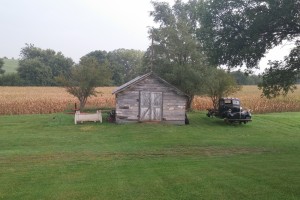
 Click right here to raise your voices,
Click right here to raise your voices,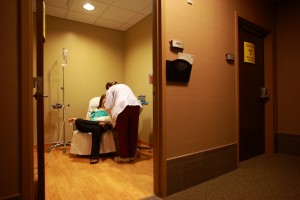 It appeared at me one day, no prior hint or decent warning,
It appeared at me one day, no prior hint or decent warning,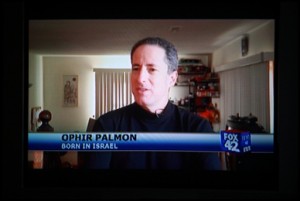 War follows me around the world,
War follows me around the world,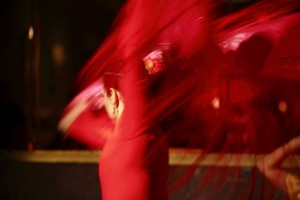 Missus Robert Smith is that no longer,
Missus Robert Smith is that no longer,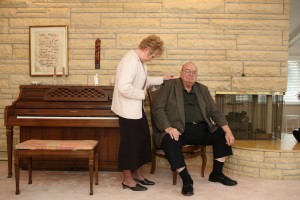
 Late last night I had two story ideas,
Late last night I had two story ideas,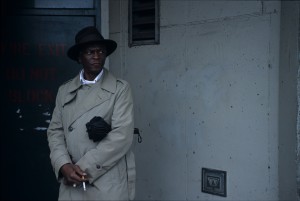 Give me one dollar,
Give me one dollar,